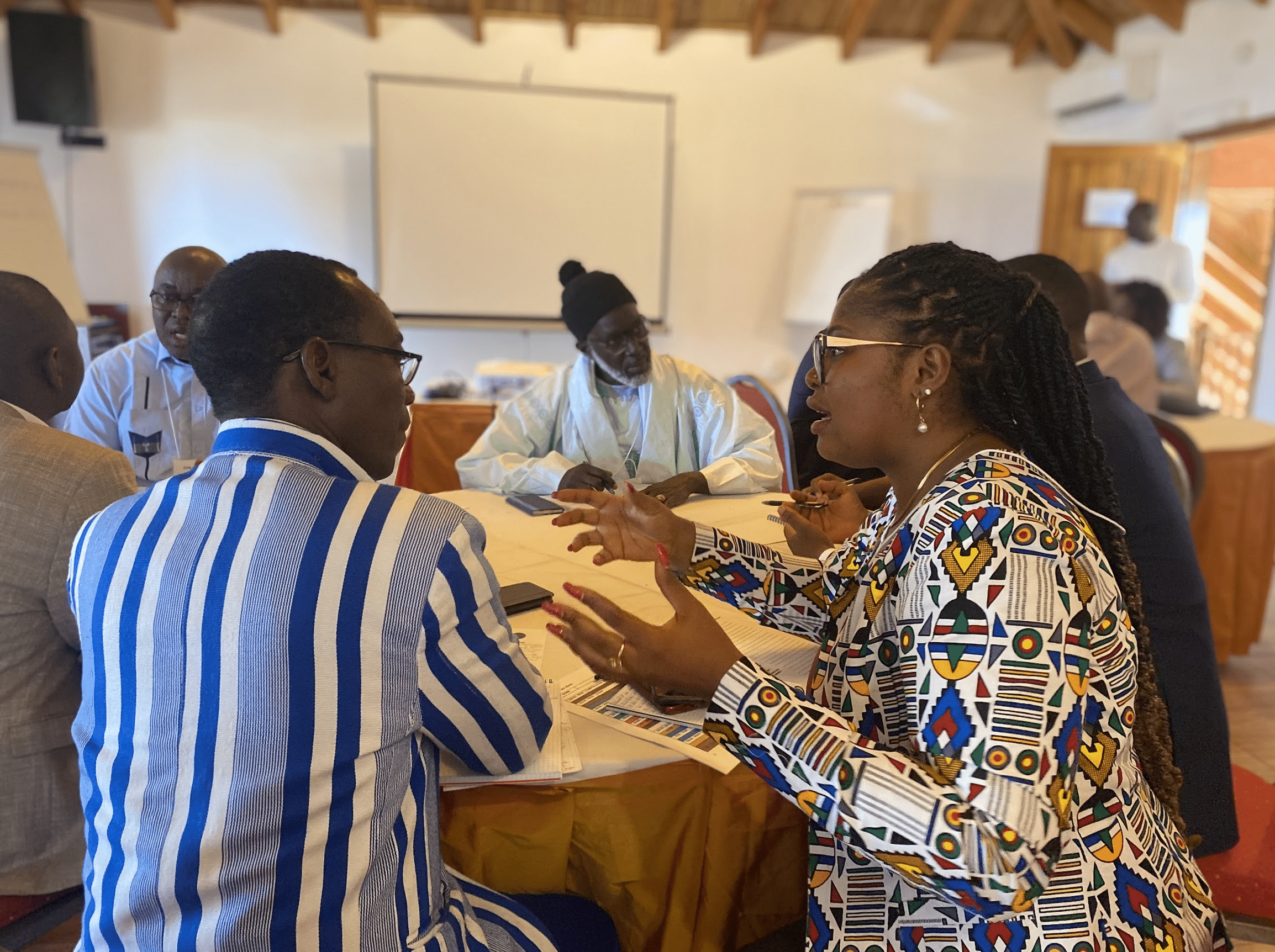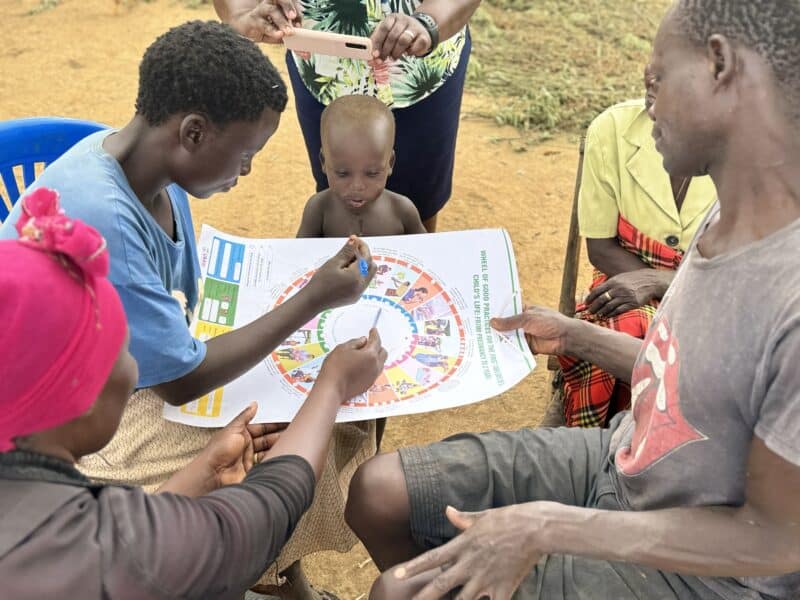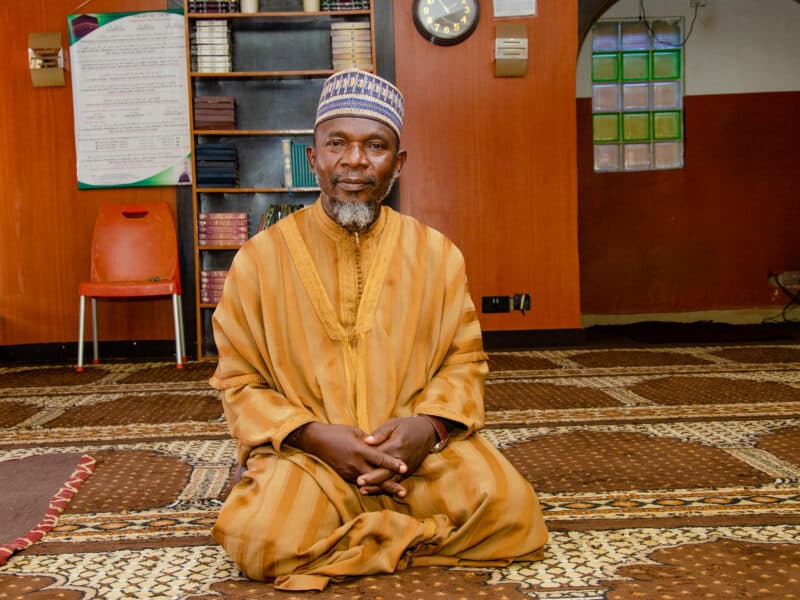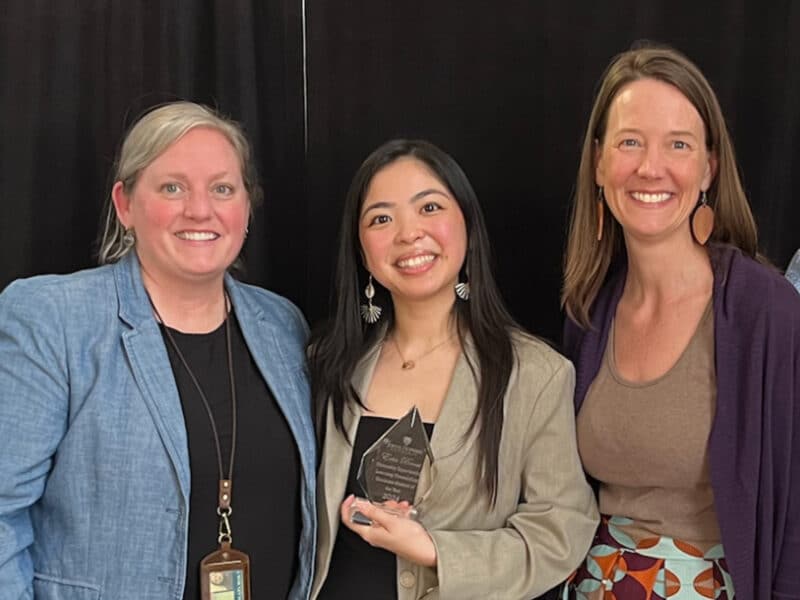Djikolmbaye Bebare Aristide is a young public health professional in Chad who coordinates with youth ambassadors working in reproductive health and family planning. For Djikolmbaye, a key challenge for family planning programs in West Africa is the financial dependence of governments and civil society organizations on international partners.
In July 2023, Djikolmbaye participated in a Learning Circle on domestic resource mobilization, with the hope of strengthening his ability to address these funding challenges. Domestic resource mobilization can be an alternative funding approach, and is a more sustainable model.
Established in 2021 by the CCP-led Knowledge SUCCESS project, Learning Circles are a set of informal group dialogues meant to develop ideas for addressing common program implementation issues.
Learning Circles are held virtually (four weekly two-hour sessions) or in person (three full consecutive days), in English and in French. The first cohorts were facilitated by Knowledge SUCCESS regional program officers, but to ensure the sustainability of the model, Knowledge SUCCESS has since partnered with other organizations (such as FP2030 and the CCP-led Breakthrough ACTION project) to train them to facilitate.
“Learning Circles enabled me to learn from reproductive health specialists about strategies for mobilizing domestic resources,” he says. “Thanks to Learning Circles, I had the chance to learn and share challenges and best practices with young people from different French-speaking African countries.”
When asked how to get evidence and best practices into use, many health professionals note that information shared at the global level isn’t always relevant. There’s a real need for knowledge and information that matches the culture and context within the countries where they work.
Learning Circles address this challenge by bringing together small groups of up to 30 people from the same region, so that shared experiences are more relevant to everyone’s context.
Through a mix of facilitated large- and small-group activities, participants explore the details of their unique problems in health and development programming, brainstorm ways to address those issues, and leave the workshop with the tools they need to make positive immediate changes to their projects.
Knowledge SUCCESS has hosted nine Learning Circles over the last two years on a wide range of topics, including gender inequalities, using community dialogues to change social norms, and encouraging meaningful youth engagement. The project adapted the model for other global health topics, such as the COVID-19 vaccination response. Participants have come from 11 countries in Asia and 35 in Africa.
Learning Circles alumni are taking the technical insights gained from group discussions and applying them back home in their own work.
For example, Djikolmbaye surpassed his goal by training 15 youth leaders and advocacy officers at civil society organizations in Chad on strategies for mobilizing domestic resources instead of 10, as anticipated. He chose to focus on civil society organizations as he considers them key agents for behavior change within communities.
“These leaders facilitate the implementation of public health policies,” he said. “Not involving community leaders in development policies is the main cause of program failures.”
Actions like Djikolmbaye’s are largely driven by individual commitment statements, which participants develop in the final session of their Learning Circle. Commitment statements describe an immediate next step to address an individual challenge. The action is meant to be something within their control (in terms of time, resources, and power), and should amplify what has already been successful in the area, while avoiding past mistakes.
One commitment statement involved advocating with medical center authorities to source single-dose COVID-19 vaccines, removing the challenge of following-up with patients for their second dose of a vaccine.
A Learning Circles participant from Mali later reported: “[We’ve begun] discussions with the health authorities in the northern region to select and order single-dose vaccines for the next COVID-19 vaccination campaign, and discussions with the chief medical officer of one district to incorporate the COVID-19 vaccine into routine vaccination during weekly [routine vaccination] days.”
Participants from Learning Circles say the approach has had exponential impacts on their work. They say it has helped them avoid repeat mistakes, adapt successful approaches from another context to their own, and in the COVID-19 context, discover connections between past strategies used in infectious disease programming that can be applied to the current COVID-19 landscapes.
For example, a participant from the Francophone COVID-19 vaccination Learning Circle shared that, a few weeks after participating, she led her 60-person team in their own Learning Circle. By replicating the activities used in the Learning Circles program, she helped her Madagascar-based team reflect on factors that led to successful implementation of their vaccination program, understanding roadblocks they had overcome , and mapping out new ideas.
“The result was top-notch, and these innovative techniques were much appreciated and very productive,” she says.
Are you interested in hosting your own Learning Circles cohort? The Knowledge SUCCESS Learning Circles module on the Knowledge Management Training Package includes guidance, templates, and other materials needed to plan, facilitate, and evaluate an in-person workshop or virtual series.





